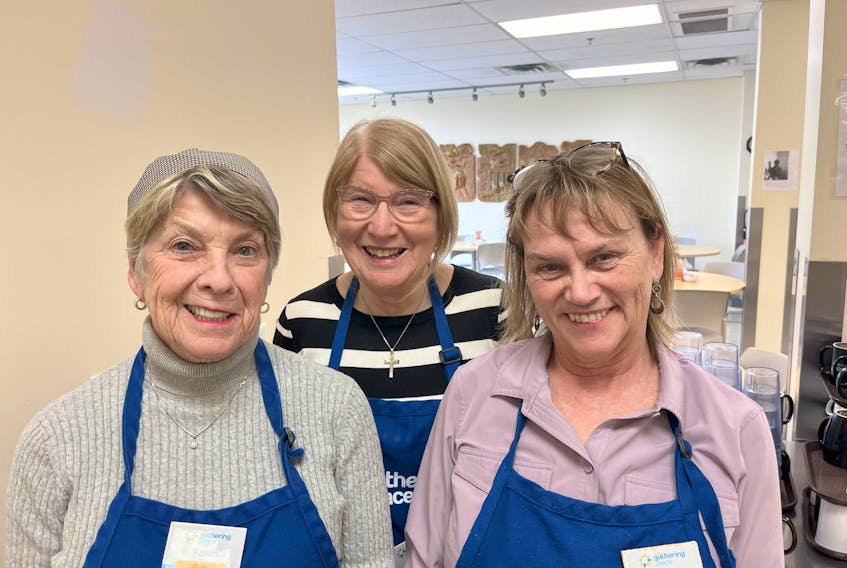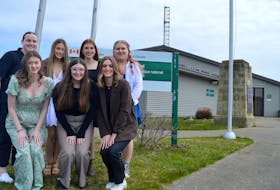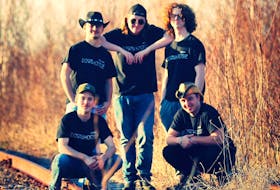Mark Hoffe
Special to SaltWire
In support of National Volunteer Week 2024, which runs April 14-20, Volunteer Canada recently released its campaign kit and rolled out the #NVW2024 and #EveryMomentMatters hashtags. The latter hashtag embodies this year’s theme.
In addition to traditional print materials, the campaign kit contains numerous curated social media and web-related resources aimed at celebrating and supporting volunteer culture.
Perhaps now more than ever, volunteers and the organizations that rely on them are leveraging technology and social media platforms to promote volunteerism and find innovative ways to advance the social benefits of volunteer culture.
“We work closely with volunteer bureaus and other local organizations who help us connect with folks looking to become involved,” said Jenn Brown, executive director of the St. John’s International Women’s Film Festival (SJIWFF).
“Our primary source of outreach used to be word of mouth, but social media and e-newsletters were how nearly forty percent of this year’s team heard about us.”

When the SJIWFF went hybrid during the COVID-19 pandemic, they cut out all volunteer roles due to safety concerns.
As a not-for-profit and registered charity run by a volunteer board of directors, the festival’s volunteer support is essential.
“Last October was our first entirely in-person edition since 2019, and we were concerned about volunteer engagement,” Brown said.
“Many of our volunteers had been with us for decades.”
Despite Brown’s concerns, over 120 people signed up to volunteer and almost 80% were new volunteers. Many of the volunteers attended the festival and wanted to be more involved.
“From that group, nearly forty per cent were in their mid-fifties or older, primarily retired folks with extra daytime availability who wanted to help,” Brown said. “The vast majority of them were women. Our youngest demographic was undoubtedly the most diverse.”
Young volunteers
To engage younger volunteers, the festival prioritizes early evening and weekend day slots. They also work with high schools and are happy to complete extra paperwork that confirms hours for youth fulfilling mandatory volunteer hours for school.
“We also offer roles that allow folks to be outgoing and public-facing or more behind the scenes to provide something for everyone,” Brown said.
“We often see youth wanting to volunteer for roles leading up to the events, such as postering.”
While the SJIWFF is free to engage high school students, volunteers at The Gathering Place must be 18 years old or older.
Community engagement
A community health centre committed to building community and promoting equality, The Gathering Place’s programs and services are offered primarily to people who are homeless or live in less than desirable housing conditions, people who are often unemployed and people who do not have adequate social supports.
“Volunteers bring so much to The Gathering Place and have been part of the operation since the beginning thirty years ago,” said executive director Paul Davis.

“A broad variety of backgrounds adds value and strength to the delivery of programs and services. We also have many volunteers who bring their professional abilities to guests such as dentists, hygienists and dental assistants, medical doctors, lawyers, tax preparers, personal counsellors and pastoral care.
“All of them bring tremendous value to guests who are challenged to receive services and support in the community.”
Davis adds that many guests also volunteer and often develop friendships with other volunteers. These relationships offer mutual respect and dignity. Although The Gathering Place once operated solely with volunteers, an increase in demand for services and programs resulted in the hiring of employees. Despite that, the need for volunteers never waned.
“We recruit via our webpage and social media,” Davis said. “Word of mouth brings in many as well. We commonly share our story through media and speaking engagements, as well, and often discuss the importance of volunteers.”

Like The Gathering Place, the Safe Works Access Program (SWAP) relies on volunteers to help deliver services to people who are often marginalized.
Offered through The AIDS Committee of Newfoundland and Labrador (ACNL), SWAP is a harm reduction service for people who use drugs and strives to meet people where they are in life.
“Volunteers typically complete our outreach van and are working directly with service users in the community and delivering supplies where requested,” said SWAP program manager Emily Wadden.
“One of the most important things volunteers and staff alike are aware of when calling, meeting and texting service users is that we will not out service users to their family, friends, partner, landlords or other people.”

Wadden adds that SWAP staff and volunteers do not identify who they are or why their van is in a particular location until they’re certain they’re communicating with the service user who initially placed the order for supplies.
Those supplies include sterile equipment for injecting, smoking or snorting drugs, safe sex supplies and a variety of educational resources and information.
“Our program is anonymous and confidential and we take this extremely seriously and will not put service users in a position where they are now known or caught as somebody using drugs,” Wadden said.
Primarily younger adults
SWAP’s volunteer demographic is primarily younger adults between 20-30 years old and are typically students majoring in pharmacy, social work, medicine and nursing.
Many of those students attended one of SWAP’s training sessions, especially those held at various faculties on Memorial University of Newfoundland’s campus.
“Volunteers must apply and those most suitable will be accepted,” Wadden said.
“We don’t have the ability to undertake a huge number of volunteers at one time, and it’s crucial we have volunteers who uphold the values of SWAP while completing their duties.”
With only two permanent staff members to review applications and train volunteers, SWAP opens volunteer applications once or twice a year.
Grateful for volunteers
Most volunteers are hired to help with SWAP’s outreach van that operates Monday and Thursday nights.
For insurance purposes, the drivers are paid and the van passenger is a volunteer.
Wadden points out that ACNL is a non-profit organization with limited funding, so SWAP relies on volunteers to help provide vital outreach services.
“Inaccessibility is a huge challenge and without the ability to bring supplies directly to those needing them, our program would serve only a tiny percentage of those who could actually benefit from sterile supplies,” Wadden said.
“We rely on and are very grateful for our volunteers because my colleague Anna (Moulton) and I could not obtain the level of program success without them and their desire to learn about an area of practice they might have little to no knowledge about and their commitment to helping and serving a community who is generally treated as sub-human. Lack of judgment and kindness go a long way.”









